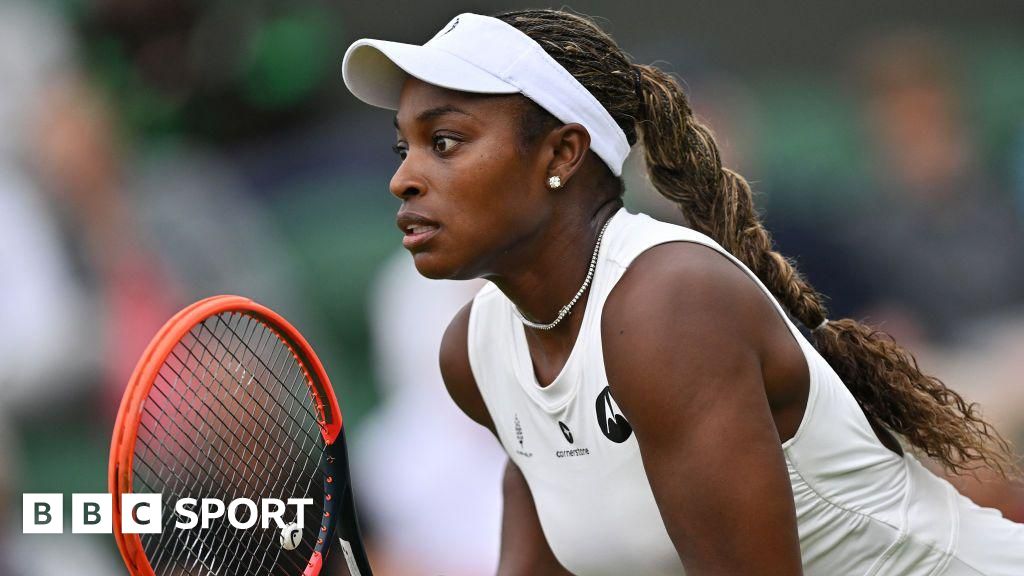Tennis
Sloane Stephens calls for protected ranking for egg freezing – BBC Sport

Image source, Getty Images
Former US Open champion Sloane Stephens wants players’ rankings to be protected if they choose to freeze their eggs.
Under current Women’s Tennis Association (WTA) rules, new mothers are able to use their previous ranking to enter 12 tournaments over a three-year period from the birth of their child.
Since 2019, returning mothers with a special ranking high enough to be seeded have also had a guarantee they will not face a seeded player in the opening round of their first eight tournaments.
American Stephens explained how the egg-freezing process can impact women physically and mentally, affecting how they perform when they return to the court.
“They put you to sleep and they actually take the eggs out. It’s a very involved process and I don’t think people understand that,” the 31-year-old told BBC Radio 5 Live’s Naga Munchetty.
“I think the overall consensus of it is that it’s very easy and very simple, but it’s just not.
“It is difficult but if you want to have a family, if you want to continue to be successful in the career that you love and then also have a family and be a mum one day, you shouldn’t have to fight one for the other.”
Egg freezing is the process of harvesting and freezing a woman’s eggs so she can have children at a later date.
Cricket World Cup winner Nat Sciver-Brunt recently spoke about her decision to freeze her eggs to allow her to continue her career and have a baby when she retires.
“People put it off because they don’t want to miss work. We are all independent contractors and we’re basically just on our own if you do get pregnant or you decide to freeze your eggs,” former world number three Stephens said.
“It would be super helpful for a lot of girls because it would make it a lot less scary.
“More people would do it and be proactive about it because they wouldn’t feel the pressure to come back to the sport right away if they weren’t ready.”
Stephens said she had “no problem being the guinea pig” when it came to the procedure.
“I think it was something that I always wanted to do. My grandpa was an OBGYN [obstetrician-gynecologist] so it was something that we had always spoken about and it was a very open conversation,” she said.
“Obviously I never knew how long I would play tennis. I never knew that I would be one of the best players in the world.
“Family planning and being proactive and future planning is not scary. It’s a very normal and natural thing.”
Two-time major winner Victoria Azarenka told BBC Sport in May that she would like to see maternity pay introduced on the WTA Tour.
A number of mothers have returned to tennis in recent years – perhaps most notably Serena Williams, who reached four Grand Slam finals after having her first daughter, Olympia, in 2017.
The WTA’s current rules give returning mothers three years to use a special ranking from the birth of their child.
Players returning from a one-year medical absence or maternity leave may use their special ranking for seeding.
The governing body of the women’s tour also provides maternal health services and education.
“Supporting athletes for over 50 years, the WTA boasts one of the strongest health and wellness infrastructures in professional women’s sports today,” a WTA statement provided to BBC Sport read.
“With approximately 20 moms currently competing, the WTA is committed to serving every player’s unique health journey and offering world-class maternal healthcare, policies, benefits, and education.
“From medical academia research to the private sector, the WTA Women’s Health Taskforce is currently working to collaboratively source and evaluate further benefits and policies in the areas of fertility preservation, paid maternal leave, and childcare support, which align with the WTA’s standards, ethics, integrity, equitable access, and fairness within a competitive environment.”










